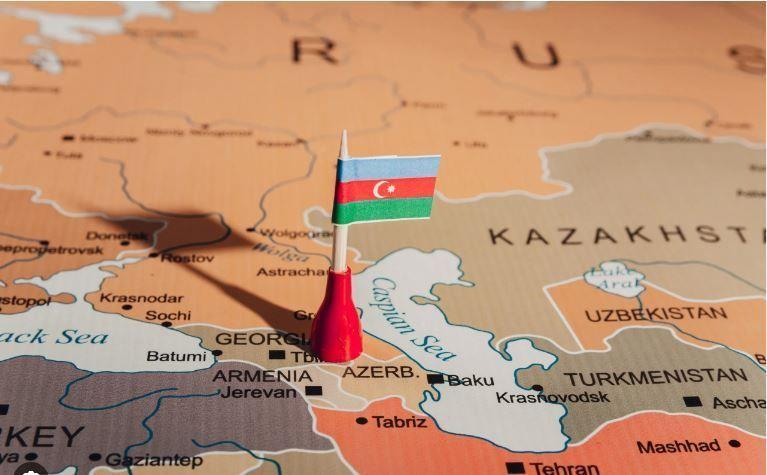
Azerbaijan's Response To Economic Vulnerabilities Amidst Growing Geopolitical Risks
The geopolitical turmoil across the Middle East, the Russia-Ukraine war, and Georgia's internal political instability present significant challenges to the global economy. These conflicts intersect with critical energy exports and growing non-oil trade because of its reliance on fragile transit routes and regional stability. The combined effects of these conflicts create vulnerabilities that demand a multifaceted strategy to mitigate risks and secure economic stability.
Azerbaijan is one of the countries that can be affected by the above-mentioned conflicts. Azerbaijan's energy sector, dominated by oil and gas exports, forms the backbone of its economy, accounting for a significant share of GDP and government revenue. The said conflicts happen near Azerbaijan's oil and gas pipelines. Besides, Ukraine and Russia play an important role in Azerbaijan's non-oil and gas exports.
Speaking to AZERNEWS on the issue, CEO, Belt and Road Consultant Pvt Limited Muhammad Asif Noor noted that the Baku-Tbilisi-Ceyhan (BTC) pipeline, which traverses Georgia to Türkiye's Ceyhan port, is a lifeline for these exports. However, the pipeline's proximity to conflict zones, including Syria, exposes it to risks from regional instability.
“Recent advances by rebel groups in Aleppo, coupled with growing tensions between Israel and Arab nations, increase the likelihood of disruptions that could jeopardize the security of this critical transit route. Any interruption in the pipeline's operations would significantly affect Azerbaijan's ability to meet its export commitments, erode investor confidence, and diminish its role as a reliable energy supplier to Europe,” said Asif Noor.
He added that Georgia's political instability compounds these risks. As a vital transit hub for Azerbaijani energy and goods, Georgia's internal unrest threatens the operational integrity of the BTC pipeline and the Baku-Tbilisi-Kars railway.
“The potential for logistical disruptions in Georgia underscores Azerbaijan's vulnerability to external shocks, particularly as it seeks to diversify its economy through non-oil exports. As for the Russia-Ukraine war further complicates Azerbaijan's economic landscape. While Azerbaijan has strategically positioned itself as an alternative energy supplier to Europe, benefiting from the EU's reduced reliance on Russian gas, this shift also increases its exposure to geopolitical pressures. Additionally, Ukraine's role as a trade partner has been diminished by the war, disrupting supply chains and reducing demand for Azerbaijani exports, particularly in agriculture,” Asif Noor pointed out.
He emphasized that to address these challenges, Azerbaijan must adopt a comprehensive strategy that focuses on diversification, resilience, and regional cooperation. First, diversifying export routes is essential to reducing dependence on any single transit corridor.
“Investments in the Trans-Caspian International Transport Corridor and modernization of the Aktau port could provide alternative pathways for energy and goods exports, circumventing volatile regions and enhancing Azerbaijan's connectivity with Central Asia and Europe.
Second, Azerbaijan must accelerate its economic diversification efforts to reduce reliance on hydrocarbons. Expanding sectors such as agriculture, technology, and logistics can create new revenue streams and buffer the economy against external shocks. Partnerships like the one with Israel to enhance agricultural production are crucial for improving food security and reducing dependence on imports. Strengthening domestic production capacity would not only address inflationary pressures but also position Azerbaijan as a regional supplier of essential commodities.
Third, Azerbaijan's diplomatic strategy should focus on deepening alliances with reliable partners like Türkiye and the European Union while maintaining pragmatic relations with Russia. Türkiye's support during the Second Karabakh War demonstrated the value of this partnership, which can be expanded to include joint infrastructure and energy projects. Enhanced cooperation with the EU on energy and trade diversification would also bolster Azerbaijan's economic resilience and international standing,” he noted.
Asif Noor also added that internally, Azerbaijan must address structural vulnerabilities to enhance economic stability. Strengthening social safety nets for populations affected by inflation and remittance declines can mitigate social discontent and ensure political stability. Additionally, investments in renewable energy and green technologies can align Azerbaijan with global sustainability trends, reduce carbon dependency, and open new avenues for international collaboration.
“The interplay of conflicts in the Middle East, the Russia-Ukraine war, and Georgian political turmoil poses significant risks to Azerbaijan's export-driven economy. These challenges threaten the security of critical energy transit routes, disrupt trade relations, and exacerbate domestic economic vulnerabilities. However, by adopting a proactive and multifaceted approach that includes diversifying export routes, accelerating economic diversification, and deepening strategic partnerships, Azerbaijan can navigate these turbulent times while safeguarding its economic stability. The path forward requires a delicate balance of pragmatism, adaptability, and visionary leadership to ensure Azerbaijan's resilience in a volatile and interconnected world,” Asif Noor concluded.
Legal Disclaimer:
MENAFN provides the
information “as is” without warranty of any kind. We do not accept
any responsibility or liability for the accuracy, content, images,
videos, licenses, completeness, legality, or reliability of the information
contained in this article. If you have any complaints or copyright
issues related to this article, kindly contact the provider above.


















Comments
No comment